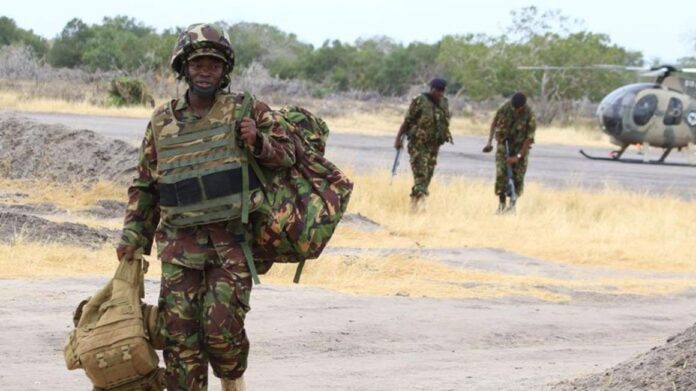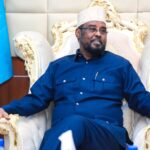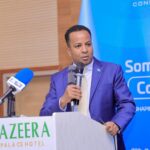Donor reimbursements to Kenya for its troops fighting Al-Shabaab militia in Somalia have been cut 66 percent or Sh4.9 billion in the new financial year starting July, as the UN-backed planned date for exit draws closer.
A report tabled in Parliament by the Treasury showed that the European Union (EU) and its partners are expected to refund Sh2.5 billion for the new fiscal year, down from Sh7.4 billion in the ending 2020/2021 window as funding dries out because of African Union Mission in Somalia’s (Amisom) planned handover to Somali security forces in December.
The grants to Kenya are usually made through the African Union Peace Facility. Soldiers fighting militants in Somalia usually serve for one year, which may be extended by a few months or cut short depending on the situation.
Conservative estimates earlier showed the international community pays $1,028 (Sh112,052) for each soldier per month. Their respective governments then deduct about $200 (Sh21,800) for administrative costs, meaning the soldiers take home about $800 (Sh87,200).
The EU funds largely cater for allowances for the Amisom troops and police, international and local civilian staff salaries, and operational costs of their offices.
The United Nations Support Office in Somalia (UNSOS), on the other hand, provides logistical field support to the Amisom troops and Somali National Security Forces during joint operations.
The refunds to Kenya have been falling with indications that Nairobi has gradually been reducing its defence forces from the war-torn country.
A leaked audit report by PwC Associates Ltd (Mauritius) earlier this year queried payment of soldiers who had left the mission, pointing to weak accountability measures in the payroll that resulted in the possible loss of millions of dollars between 2016 and 2018.
The 15-member African Union (AU) Peace and Security Council on May 11 extended Amisom’s stay in Somalia to December 31 from an earlier date of March 14 after the country failed to conduct a presidential poll in February.
The move by the AU’s top decision-making organ on conflict management and prevention was in line with the UN Security Council’s resolution on March 12, reauthorising Amisom to maintain its 19,626 officers in Somalia.
Somalia’s president Mohamed Abdullahi Mohamed, better known as Farmaajo, in late April dropped plans to seek a two-year extension of his term in office and called for fresh presidential polls amid rising tension in the capital, Mogadishu.
He had controversially approved the move after disagreements over how to hold elections — provoking three days of clashes in Mogadishu between rival factions of the security forces.
The stand-off drew condemnation by the international community amid fears that it risked throwing the country back into the clan-based violence that scarred the country after the fall of the Siad Barre regime in 1991.
Somali elections are conducted under a complex indirect system where clan elders select MPs, who in turn choose the President.
President Farmajo’s mandate expired in February but no vote has been held because of regional squabbles over how power is distributed – and a row over a new electoral commission.
US President Joe Biden plans to deploy American special troops to Kenya to help in the region’s counter-terrorism efforts.
In a letter to the US Congress, President Biden said that he had approved sending special operation troops to Kenya, which is expected to collaborate with the Kenyan military in combating
Al-Shabaab. The number of troops is not indicated.
Specialist missions
Foreign nation military partners with US Security Force Assistance Teams or Brigades (SFABs) like the ones expected to be deployed for training specialist missions in Kenya are specialised units formed to train, advise, assist, enable and accompany operations with allied and partner nations.
Designed on the model of a standard infantry brigade combat team, SFABs is composed of roughly 800 personnel, primarily commissioned and non-commissioned officers selected from regular army units.






